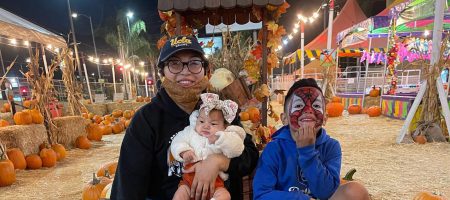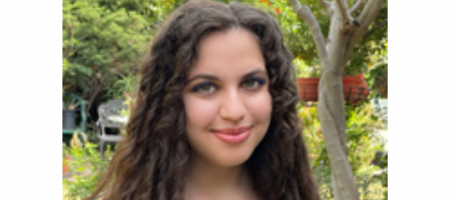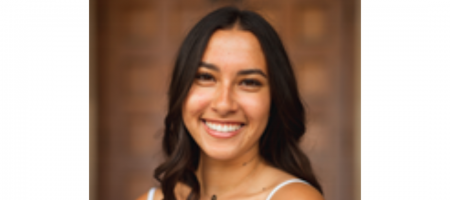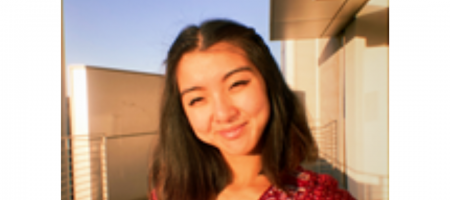Meet UCLA undergraduate researcher Desiree Eshraghi!
Desiree Eshraghi majors in Psychobiology and minors in Disability Studies and is in our Undergraduate Research Fellows Program (URFP). The title of her project is “Disability and Heat: Physiological and Social Disparities in Regards to Heat Exposure.” She hopes to expand people’s perspective of disability by providing insight into the complexity of the subject. Her best piece of advice is to pursue what interests you!
How did you first get interested in your research project?
Growing up in the sunny San Fernando valley can be tough. Constantly sweating, the inescapable threat of sunburn, and burning hot asphalt. Heat in California is undoubtedly a serious public health issue. However, even as a child, I distinguished the difference in experience and needs my brother, who is autistic and epileptic, had in response to the heat compared to mine. Overt exhaustion, especially heat exhaustion, could trigger a seizure.
I was reminded of these stark differences in heat protection and thermal comfort between my brother and I when joined Dr. Venkat’s Heat Lab. There, we seek to explore the interdisciplinary ways heat interacts with community health such as through physiological means, sociological means, etc. As I decided to pursue my minor in Disability Studies, I also chose to pursue this research topic in the Heat Lab.
What has been the most exciting aspect of your research so far?
Seeing just how interconnected my research is to so many fields is beyond exciting, let alone the real-world applications to improving heat protection guidelines to better protect the disability community. Research regardless of field is so interdisciplinary and interactive, ever-expanding in unexpected and exciting ways!
What has surprised you about your research or the research process?
It has surprised me to what degree disability is obscured or euphemized in research – making it quite more difficult to find relevant disability research. “Comorbidities”, “Pre-existing conditions”, “rehabilitation”: all these words refer to some form of disability (even temporary) yet are not often considered so by the general population or advanced search engines. This revealed to me the precision and determination needed to seek out relevant literature in regards to my research topic.
What is one piece of advice you have for other UCLA students thinking about doing research?
Pursue your interests and in time, you will find how it applies to your career field. As an aspiring physician, it may be surprising to see me become an Undergraduate Researcher Fellow through HASS, but it’s been an undeniably profound experience so far that is sure to aid me in my future medical career. Everything interconnects, and my research into the disability community and community health in general will surely prepare me in better understanding the backgrounds and special circumstances of all my future patients. Similarly, if you find yourself going against the grain in regards to your career field pathway, be sure to explore it the fullest!
What effect do you hope your research has in your field, at UCLA, in your community, or in the world?
I hope my research will push our Bruin and LA community at large to be more inclusive and accessible to all members of their community. Furthermore, I hope this research expands people’s perspectives into how we see disability and that it is much more complex than a straightforward medical diagnosis or as only a response to our built environment.





